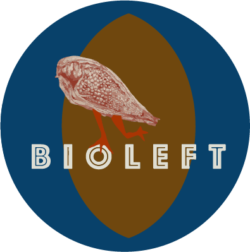On Thursday, July 15, we met with producers, students, extension agents and breeders to exchange results and learnings about two evaluations of different Creole tomato seeds: one of them was carried out in a participatory manner by Bioleft together with producers from the Constelación Semillería, in Los Molles (San Luis) and General Rodríguez (Buenos Aires). The other evaluation was carried out in greenhouses of the Gorina Experimental Station by two members of the FAUBA Department of Genetics.

The exchange between the two experiences was more than interesting, the observations on the seeds evaluated using the Bioleft platform were shared and the next campaign of the Bioleft experiment was planned, taking into account learnings from the 2020-2021 campaign, such as the importance of considering the edge effect, of maintaining genetic diversity, of systematizing observations and the challenges of making selection in self-pollinated plants such as tomato.
Although every tomato entry evaluated presented its characteristic differences, all the evaluators agreed on the greater tolerance to pests and diseases of Creole tomatoes compared to commercial tomatoes, in their better taste in general, and in the potential that they have as a source of variability for genetic improvement.
At the same time, the next steps of the project began to be planned:
- Bioleft and Constelación will continue working on the improvement of two entrances by selecting plants with the aim of homogenizing the populations based on the best characteristics present in them and adapting them to their production environments, evaluating the organoleptic characteristics, yield, health, tolerance. to hydric stress, firmness of fruits in plant.
- Meanwhile, at FAUBA, the Department of Genetics will continue crossbreeding of some entries, and of these, two or three self-fertilization will be carried out per year in the greenhouse, and after approximately two years it will redistribute seeds to producers for evaluation and selection. in certain environments, thus generating new improved varieties. In addition, they will collaborate in the improvement that Constelación will undertake.
The importance of continuing to work in a coordinated manner in the design and execution of the trials was highlighted in order to obtain comparable results and reach better conclusions that allow making the right decisions. In this sense, it was agreed to have a new meeting soon to continue, in principle, with the definition of the Constellation 2021-2022 campaign.
If you are interested in evaluating Creole tomatoes, do not hesitate to contact us.
